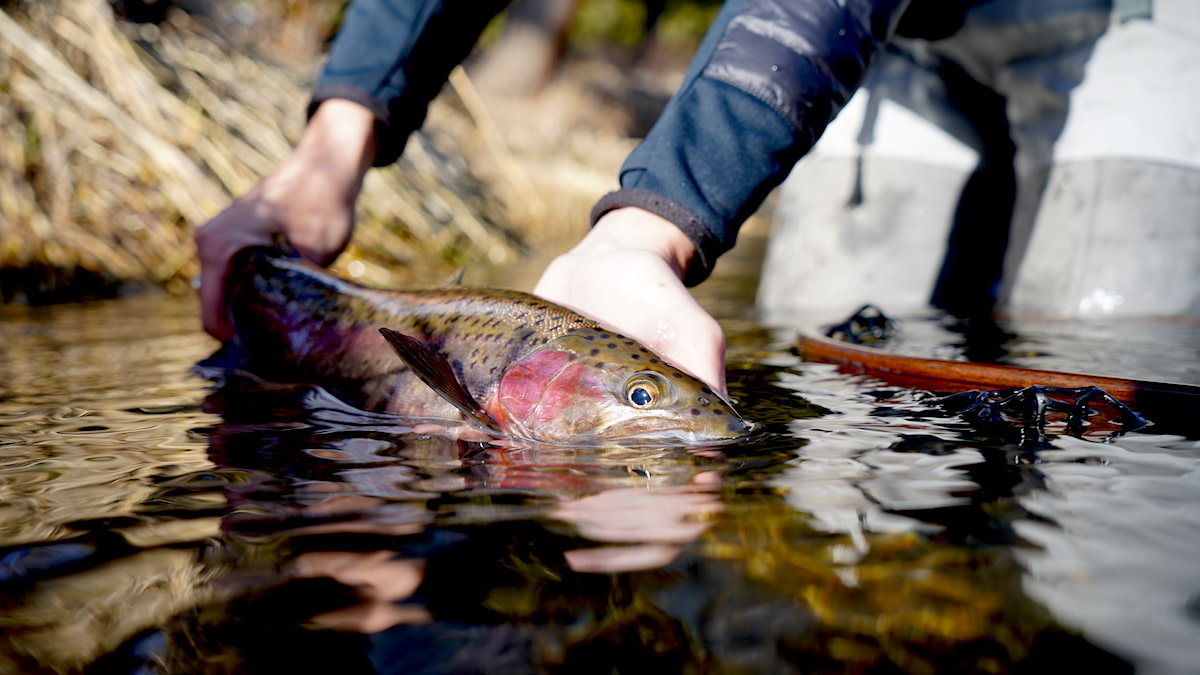
On March 1, the New Mexico Supreme Court unanimously ruled that regulations allowing landowners to restrict public access to rivers and creeks is unconstitutional.
“Today is an exciting day in New Mexico history. Our state Supreme Court reaffirmed the constitutional rights of New Mexicans to their public waters,” New Mexico Senator Martin Heinrich said in a press release. “This is a huge victory for people who care about our history, our culture, and our natural resources. I want to thank everyone who made this possible to make sure that public waters stay in public hands.”
In 2015, the state legislature approved Senate Bill 226, which gave the State Game Commission authority to declare New Mexico waters either “navigable” or “non-navigable.” However, declaring a stream legally “non-navigable” quickly manifested as No Trespassing signs and barbed wire over waterways that pass through private land.
Unlike many Western states, navigability doesn’t mean much in the arid Land of Enchantment. For example, New Mexico’s largest river, the Rio Grande, periodically dries up in some sections, frequently rendering it effectively non-navigable. So how does a waterway go from being declared non-navigable to not accessible by the public? Jesse Deubel, executive director of the New Mexico Wildlife Federation, fought against this law for years and explained its intricacies.
“The legislation essentially prompted the game commission to create this rule that allowed them to issue certificates of non-navigability,” Deubel told MeatEater. “It was really kind of a brilliant distraction on the part of the privatizers to create this navigability red herring, if you will. It was never about navigability.”
Wealthy landowners who wanted to block public access to flowing water passing through their lands simply had to pay to apply for a certificate of non-navigability through the State Game Commission. A single attorney, Marco Gonzalez, processed 100% of these applications. He submitted five in 2018 and all were approved, prior to courts halting the process. These certificates effectively blocked public access to certain stretches of the Pecos, Chama, Penasco, Mimbres, and Alamosa rivers.
Upon acceptance of these certificates, employees from the New Mexico Game and Fish Department would install No Trespassing signs on the waterways, according to Deubel.
“Then, the landowner had the ability to put razor wire, barbed wire, concertina wire, chain link fence, whatever they wanted across the river, blocking public access,” he said. “There was never any type of investigation whatsoever as to the navigability. There was not a single attempt to research whether or not these particular landowners should actually be issued these certificates. The fact was if you spent the money to apply for the certificate, you were gonna get it.”
In 2019, incoming Governor Michelle Lujan Grisham appointed a new game commission. The chairwoman, Joanna Prukop, a 25-year veteran of wildlife management and public policy, began making moves to repeal, reform, or replace the ruling.
“The governor immediately removed her from the commission because one of the people who have one of these certificates is a very, very wealthy landowner who has made significant political contributions to this governor's campaign,” Deubel said.
The replacement chair appointed by Gov. Lujan Grisham, Sharon Salazar-Hickey, had no experience with wildlife management but did serve on a hospital board with Marco Gonzalez. Not surprisingly, Salazar-Hickey was given specific instructions to not open up the non-navigable certification rule.
“This is why we took the case to the Supreme Court,” Deubel said.
The New Mexico Wildlife Federation, New Mexico Chapter of Backcountry Hunters & Anglers, and the Adobe Whitewater Club rallied together to sue over the rule on the grounds that it violated the New Mexico Constitution, which guarantees public access to moving waters, which are owned by the state. Once that case reached the state supreme court, it only took the justices 17 minutes to unanimously declare the rule unconstitutional.
“This decision by the state supreme court is great news for anglers, boaters, and others who use our public waters in New Mexico, but it shouldn’t come as a surprise,” Joel Gay, New Mexico Backcountry Hunters & Anglers policy chair said in a press release. “In 1945 the Supreme Court said the same thing—that these waters throughout the state are everyone’s to enjoy for recreational use. We don’t know how that constitutional right got lost, but for decades we have been told otherwise. Our chapter thanks the state supreme court for setting the record straight—again.”
While the court made the ruling, it was the unified voices of folks who care about public access that ultimately made this change happen. Those five non-navigable certifications are now void and the people may once again wade and float these waterways.
“New Mexicans have always understood agua es vida, water is life,” Sen. Heinrich said. “We know how vital managing this precious resource is to preserving our economy, our environment, and our traditional approaches, many of which have been in place since before statehood. Whether through the courts or not, we must all reaffirm that New Mexico’s rivers, streams, and lakes belong to the public.”
Feature image via Sam Lungren.






